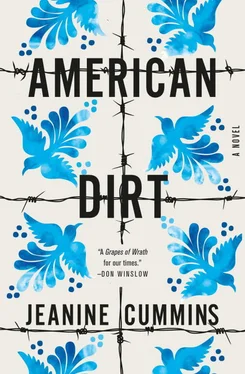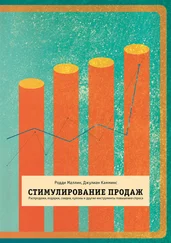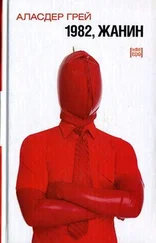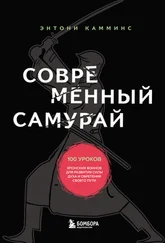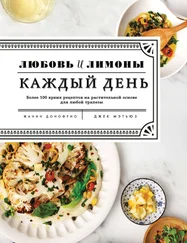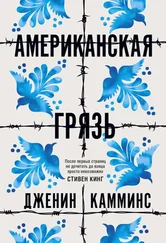‘Rebeca,’ she whispers, touching her sister’s shoulder lightly. Luca’s eyes pop open, but Rebeca is still asleep. ‘I’m sorry,’ she says to Luca, but he’s already fallen back asleep. ‘Rebeca,’ she says again, shaking her sister more roughly. Her sister breathes deeply and doesn’t move. Soledad stands and moves quietly through the apartment, up the stairs, and back out to the street.
She removes the tiny scrap of paper with the hospital’s phone number from where it’s folded into a tiny square in her pocket. She presses the numbers. It takes her two tries, but then the phone at the Hospital Nacional in San Pedro Sula is ringing.
‘Hello?’
There are several transfers before Soledad hears the familiar voice of the nurse Ángela on the line. She can feel adrenaline coursing through her shoulders, her neck. When Soledad looks back on this moment for the rest of her life, when she relives it, really, she will come to believe that she already knew what the nurse was going to say, she knew it well before the words emerged from her mouth and traveled into that faraway phone, before they bounced out across cell towers and satellites and reverberated back into this borrowed cell phone here on the border of the United States, and fell into her waiting ear. She will come to believe that she knew it from the moment Lorenzo handed her that phone, from before that even, from when she first stood on the pavement in Nogales and wrapped her fingers around the bars that demarcated the border of Estados Unidos, from when she sat on that cold, dirty toilet in Navolato while that unwanted but still loved baby fell out of her, from the first day she felt the thudding and thrumming of La Bestia beneath her bones, from the first time Iván raped her, from way before that even, before she ever set eyes on the city of San Pedro Sula, from the days when her father used to hoist her onto his shoulders and she’d wrap her tiny baby-arms around his sweaty forehead while he swiped a path for them through the cloud forest with his machete. She will come to believe that she knew this truth from the day she was born, when her father first held her in his arms and gazed upon her beautiful face with love and love and love.
‘I’m so sorry,’ Ángela says.
Alone in the street, Soledad bends in half, planting the palms of her hands hard against her knees. She doesn’t cry, but instead shakes and shakes. She paces but cannot find anywhere to escape her panic. She says the word no out loud more than a hundred times, tight through the garble of her seizing throat. She flaps her hands to try to shake the adrenaline out of her, but the grief has descended like a demon beast, and she realizes immediately that the burden of that grief must be hers alone to bear. Rebeca must survive the desert, and she might not survive the desert if she has to do it while carrying this monster on her back. She will not tell her sister. My fault. So she gets down on her two knees right there in the street and feels the sharp pebbles pressing up through her jeans. She prays and prays that God has taken Papi quickly into heaven, that somehow her father will forgive her for the death she has caused him.
‘I’m so sorry, Papi. Forgive me, Papi, please,’ she says over and over again.
Her legs feel shaky so she moves to sit on the curb, wondering vaguely how the news will travel up the mountain to the village. She wonders if Mami and Abuela already know. She wonders if she will ever see them or hear their voices again. Because Papi was the only hub connecting them, and now he’s gone. One of the other men from the mountain who works in the city will hear, she thinks, and in sorrow he will carry that unholy news on the bus, three hours up the narrow, disappearing roads into the clouds. He’ll deliver it to Mami and Abuela. She closes her eyes to that thought. She puts it away from her because Soledad has been through enough to know that she’s at her limit, that she can go no further into that anguish without vanishing forever. The only thing that matters now is Rebeca. She can still save Rebeca.
When she stands up from that curb, Soledad is already a ghost of herself. Perhaps very deep within her, there’s still some smoldering wick that was once the flame of her person, but she cannot feel it there. She opens the door of the apartment, and descends.
They’ve all packed their scant belongings, prepared and eaten the remaining food, and are drinking instant coffee by the time the sun begins to slant toward the horizon and El Chacal returns. Beto has nothing to pack. Marisol has ditched her black wedges in favor of some Adidas trail hikers. No one talks as they ascend the staircase out of the apartment one last time. There are two open-bed pickup trucks parked outside, and the back of one is half-filled with several dozen plastic gallon jugs of water, painted black. Lorenzo approaches the white truck, so Lydia herds Luca toward the blue one. Beto, the sisters, and Marisol all climb in after them, among the water jugs. Nicolás, too. He sits beside Marisol.
‘So, do you have a girlfriend back at college?’ she asks.
Nicolás shakes his head.
‘You know, my daughter is a college student in San Diego. A sociology major. What’s your field of study?’
Nicolás’s eyebrows animate themselves across his forehead. ‘I study evolutionary biology and biodiversity in the desert,’ he says.
‘Oh.’ Marisol is unable to muster any appropriate follow-up questions.
‘What the hell is that?’ Beto asks.
Nicolás laughs. ‘It means I study how organisms evolve, and what environmental factors influence that evolution, and vice versa.’
Beto looks at him blankly.
‘Specifically, I study the migration patterns of certain desert butterflies, and the effect of those changing migration patterns on certain flowering shrubs.’
‘Desert butterflies, huh?’ Beto says suspiciously.
‘Yes.’
‘You study, like, where they go?’
‘Yes.’
‘And that’s, like, a whole job? That’s all you do?’
Nicolás grins at Beto.
‘Man, I want to go to college,’ the boy says.
El Chacal is securing the liftgate at the back of the other truck, and now he walks over to theirs. He looks at them individually, checking their gear. His own shoes are solid, lightweight hikers, dusty enough to appear as if they could belong to any migrant, albeit one with the means to buy himself boots for the trek. He’s dressed like he was the day he met them in the plaza – close-fitting jeans and a gray Under Armour T-shirt this time. His backpack, sitting on the seat in the cab, is tiny. His jacket, made of waterproof Gore-Tex, is light enough to tie around his slim waist. His cheeks, as usual, are a cheerful shade of pink in the light brown expanse of his face. Everything about his body seems designed for the wilderness. He is lean, muscular, compact, and he moves with efficiency as he steps from migrant to migrant, examining their footwear, their moods, the weight of their packs. Nobody with a sniffle or a sneeze will be allowed to make the journey. He stops when he gets to Beto.
‘Where’s your bag?’ he asks.
Everyone else is clutching their pack in front of them. Beto has nothing.
‘I don’t need no bag, güey, ’ Beto says. ‘Everything I need is right here.’ He taps on the side of his head with one finger.
‘That crazy brain of yours going to keep you warm tonight?’
‘What are you talking about, warm?’ Beto says. ‘ No manches, güey. We’re in the middle of a heat wave. It’s like a million degrees outside.’
It is April in the Sonoran Desert, and uncommonly warm this week. Today’s high was ninety-seven degrees Fahrenheit.
Читать дальше
